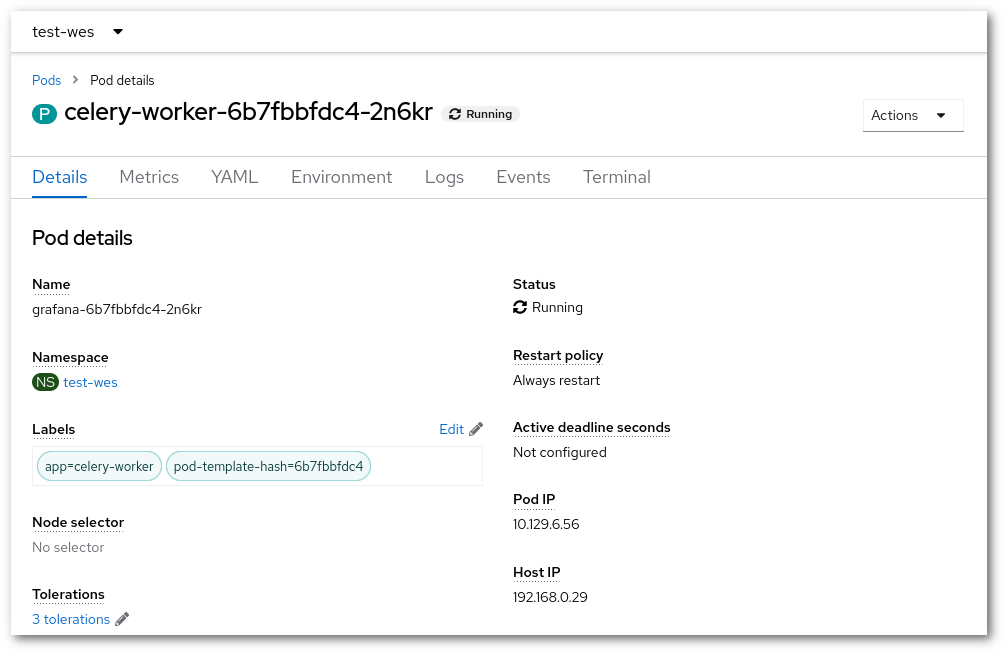Pod (anti) affinity
Pod affinity and anti-affinity allow you to constrain where your Pods will be scheduled on, based on the labels of Pods already running on that node. This general idea can also be used to select (or avoid) specific nodes with specific hardware configurations like a GPU.
This is useful because sometimes (affinity) it is interesting to be sure that two Pods share the same mounted volume and avoid network synchronization issues, or the opposite, (anti-affinity) make sure two pods will not share the same server and thus increase the availability of an application.
In this example of a deployment we want the Pods from the wes-deployment to run in the same node as the celery-worker ones so they can both mount the same storage volume (which can only be mounted on a single physical node).
diff --git a/charts/wes/templates/wes/wes-deployment.yaml b/charts/wes/templates/wes/wes-deployment.yaml
index 93ca230..e64349b 100644
--- a/charts/wes/templates/wes/wes-deployment.yaml
+++ b/charts/wes/templates/wes/wes-deployment.yaml
@@ -12,6 +12,16 @@ spec:
labels:
app: {{ .Values.wes.appName }}
spec:
+ affinity:
+ podAffinity:
+ requiredDuringSchedulingIgnoredDuringExecution:
+ - labelSelector:
+ matchExpressions:
+ - key: app
+ operator: In
+ values:
+ - celery-worker
+ topologyKey: "kubernetes.io/hostname"
initContainers:
The affinity block needs to be under spec. For applying this to another deployment one will need to change only the value and perhaps the key, so it corresponds to one key and value pair of the Labels belonging to the Pod we want to have affinity with. It is possible to see the Labels of a Pod via the command line or via the web interface.

And from the command line:
$ oc describe pods celery-worker-6777488df4-s9tc7
Name: celery-worker-6777488df4-s9tc7
Namespace: wes
Priority: 0
Node: rahti-comp-io-s25-d/192.168.54.13
Start Time: Wed, 17 Jan 2024 14:55:57 +0200
Labels: app=celery-worker
deployment=celery-worker-57
deploymentconfig=celery-worker
(...)
When the affinity block is added to this deployment, the scheduler will (re-)launch the Pods corresponding to wes-deployment into the same as celery-worker is running. As the policy used is requiredDuringSchedulingIgnoredDuringExecution, if there is no space in the chosen node, the deployment will not succeed. Other policy is preferredDuringSchedulingIgnoredDuringExecution, which means that the scheduling will not fail if there is no space in the chosen node as they will be scheduled in a different one.
More information and further examples can be found at: